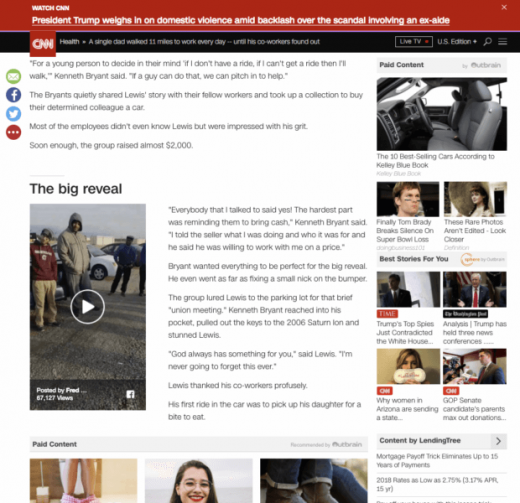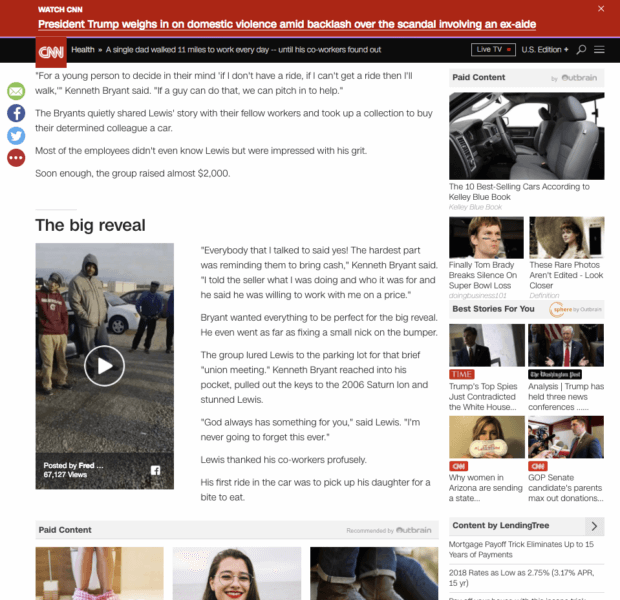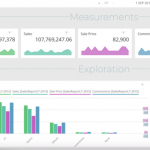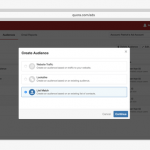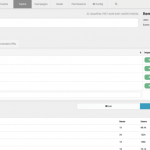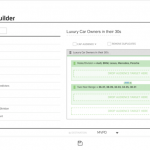Outbrain launches Sphere, a platform for content recommendations between premium publishers
Sphere offers an algorithm for recommendations based on users’ browsing, plus a per-click payment model that only rewards Outbrain for engagement.

Content recommendation services like Outbrain and Taboola post linked thumbnail images leading to what is supposed to be related material, but the quality and relevance often leave something to be desired.
In a move intended to offer high-quality and more relevant content to readers, Outbrain is announcing this week the launch of Sphere.
It’s a closed content recommendation platform, available on an invitation-only basis to selected premium publishers. Content suggestions lead only to the websites of other publishers in Sphere.
Here is a page on CNN.com, which is showing conventional Outbrain suggestions at the bottom and right-side positions. Snuggled into the right side, however, are four content suggestions that are labeled as Outbrain Sphere:
Although US General Manager Matt Crenshaw wouldn’t reveal the total number of current Sphere members or the specific membership, there are at least six participating publishers at launch: CNN, Meredith Corporation, Penske Media Corporation, Getty Images, Time Magazine and The Washington Post.
Publishers are increasingly looking for opportunities to band together as a way of combating the dominating influence of Facebook and Google, in particular, resulting in such publisher consortia as Sonobi and Pub Exchange. Crenshaw noted that publishers used to think of each other as competitors, but now they have indicated to Outbrain they would like more opportunities “to lean on each other.”
He said that one differentiator for Sphere is the utilization of a new algorithm that Outbrain says tracks an individual user’s browsing habits, so it can recommend content that said user will likely find interesting or relevant.
Outbrain intends to launch Sphere in Europe, although for now, it is US-only. A European presence will likely require some consent mechanism for the use of the tracking cookie in order to remain compliant with the upcoming General Data Protection Regulation (GDPR).
The other differentiator, Crenshaw said, is the business model. If a user clicks on a Washington Post story on the CNN page, for instance, the Washington Post pays CNN the full 1.5 cents/click rate for that referral.
A second click on the Washington Post site — either on a link inside that Post story or to other content from that Post page — indicates additional engagement, resulting in the Post paying Outbrain the full 1.5 cents for that engagement click. Any other clicks by that user in that session are free.
Marketing Land – Internet Marketing News, Strategies & Tips
(10)

